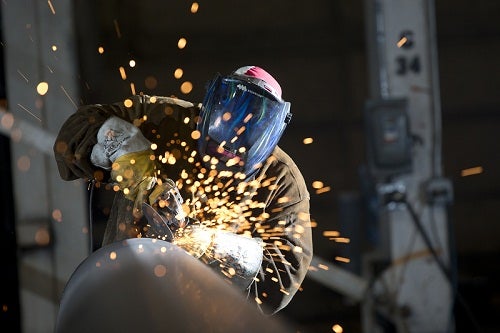10 Variables Impacting the Toughness and Strength of HSS
Hollow structural sections (HSS) have long been a popular structural steel alternative for various building and miscellaneous construction applications.

ASTM is currently in the process of approving a new specification for HSS tubing specifically manufactured for seismic building and dynamically loaded bridge structures. HSS tubing products manufactured in accordance with this new specification will possess good low temperature Charpy impact properties (CVN) as well as a maximum yield strength requirement.
HSS are manufactured utilizing the continuous electrical resistance welding process (ERW). The mechanical properties in the finished formed round, square, or rectangular HSS tube are produced by the cold work the tubing experiences during forming and sizing as well as from the tensile and CVN properties in the starting hot rolled coil material (skelp). The yield strength properties of the final formed tubing is higher than that in the starting skelp while its tensile ductility and CVN impact toughness is reduced due to work hardening during the ERW process.
The metallurgist’s job is to specify a steel coil grade/chemistry that will possess the necessary combination of tensile strength and impact toughness that will be capable of producing the required combination of strength and toughness in the final HSS product. There are a number of variables that he/she must consider in selecting the ideal steel chemistry for the job.
- Ordered size and shape of HSS tubing
- Tubing specification
- Tensile and CVN toughness properties
- Carbon Equivalent (C.E.) or Pcm requirements
- Bending, laser cutting, or other manufacturing considerations
- Method of Melting: Basic Oxygen (BOF) or Electric Furnace (EF)
- Work hardening characteristics
- Minimum % reduction from hot rolled slab to final tubing
- LEED requirements
- Cost
Optimum selection of the starting steel grade and melting method enables Atlas Tube to provide our customers cost effective HSS products manufactured from domestic hot rolled fully killed, fine grain coil steel. Whether carbon steel or a high strength low alloy (HSLA) grade is required for the job, you can always count on HSS tubing products that will meet your order requirements.
Please feel free to contact me at marvin.phillips@jmcsteel.com.
